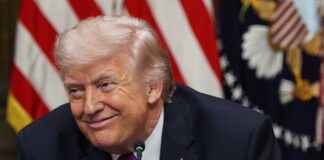Iran, China, and Russia have convened to coordinate their positions on Iran’s nuclear program, raising concerns about a unified front opposing U.S. efforts. The collaboration among these nations, often referred to as the “Axis of Aggressors,” held ahead of an International Atomic Energy Agency (IAEA) hearing, poses a significant challenge to U.S. efforts to curb Iran’s nuclear ambitions.
Russian President Vladimir Putin recently agreed to extend a line of credit to Iran, initiate the construction of a new nuclear facility, and expand operations at an existing plant. These developments signal a strengthening alliance that could undermine U.S. negotiations with Tehran.
Mikhail Ulyanov, Russia’s permanent representative to international organizations, described the discussions as “very useful,” emphasizing the importance of closely coordinating positions. Iran’s Deputy Foreign Minister for Legal and International Affairs, Kazem Gharibabadi, confirmed meetings with Chinese and Russian officials to enhance cooperation within this framework.
Western nonproliferation experts expressed concern that this alliance aims to weaken the U.S. negotiating stance. Andrea Stricker, a research fellow at the Foundation for Defense of Democracies, stated, “Russia and China are coordinating on how to cajole Trump into a weak Iran nuclear deal and helping Tehran evade consequences at an upcoming IAEA board meeting.”
Iran remains steadfast in its commitment to uranium enrichment, a central point of contention in talks with the United States. Iranian diplomatic spokesman Esmaeil Baghaei emphasized, “Continuing enrichment in Iran is an uncompromising principle.”





